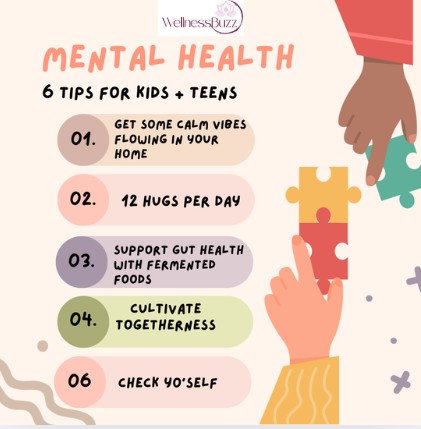The mental wellbeing of children and teens is an increasingly recognized public health priority. As young individuals navigate a complex world marked by academic pressures, social dynamics, and evolving digital landscapes, providing robust and accessible mental health support is not merely beneficial but essential for their holistic development and future success.

The Growing Need for Intervention
Mental health conditions often emerge during childhood or adolescence, with a significant percentage of lifetime mental illnesses beginning by age 14. Conditions such as anxiety disorders, depression, attention-deficit/hyperactivity disorder (ADHD), and eating disorders can profoundly impact a child’s academic performance, social relationships, and overall quality of life. Left unaddressed, these challenges can escalate, leading to more severe issues in adulthood. Early identification and intervention are therefore paramount, offering the best opportunity for positive outcomes.
Pillars of Effective Support
Effective mental health support for children and teens requires a multi-faceted approach involving various stakeholders:
- Parental and Family Awareness: Parents are often the first to notice changes in a child’s behaviour or mood. Educating families on the signs of mental distress, reducing stigma, and encouraging open communication are critical first steps. A supportive home environment where feelings are validated and help-seeking is normalized can significantly impact a child’s receptiveness to support.
- School-Based Initiatives: Schools are ideal environments for promoting mental well-being due to their continuous interaction with children and adolescents. Integrating mental health education into curricula, providing on-site counseling services, training teachers to identify warning signs, and fostering an inclusive school culture are vital components of a comprehensive support system.
- Accessible Professional Services: Ensuring that children and families have timely access to qualified mental health professionals—such as child psychologists, psychiatrists, social workers, and counselors—is fundamental. This includes expanding the availability of services, streamlining referral processes, and addressing financial barriers to care.
- Community Resources: Libraries, youth organizations, community centers, and healthcare providers can all contribute to a supportive network. These entities can offer programs promoting resilience, stress management, and social-emotional learning, as well as serve as points of connection to specialized services.
Benefits of Timely Intervention
Investing in early mental health support yields substantial returns. Children and teens who receive timely and appropriate care are more likely to:
- Achieve academic success and maintain school engagement.
- Develop healthy coping mechanisms and emotional regulation skills.
- Form positive relationships and engage constructively with their communities.
- Build resilience, enabling them to navigate future life challenges more effectively.
- Reduce the likelihood of developing more severe mental health conditions in adulthood.
A Collective Responsibility
Supporting the mental wellbeing of children and teens is a shared responsibility that extends beyond individual families to encompass educators, healthcare providers, policymakers, and communities at large. By fostering environments that prioritize emotional well-being, reduce stigma, and provide readily available resources, we empower children and teens to thrive, build a foundation for a healthier future, and contribute positively to society.







Leave a Reply